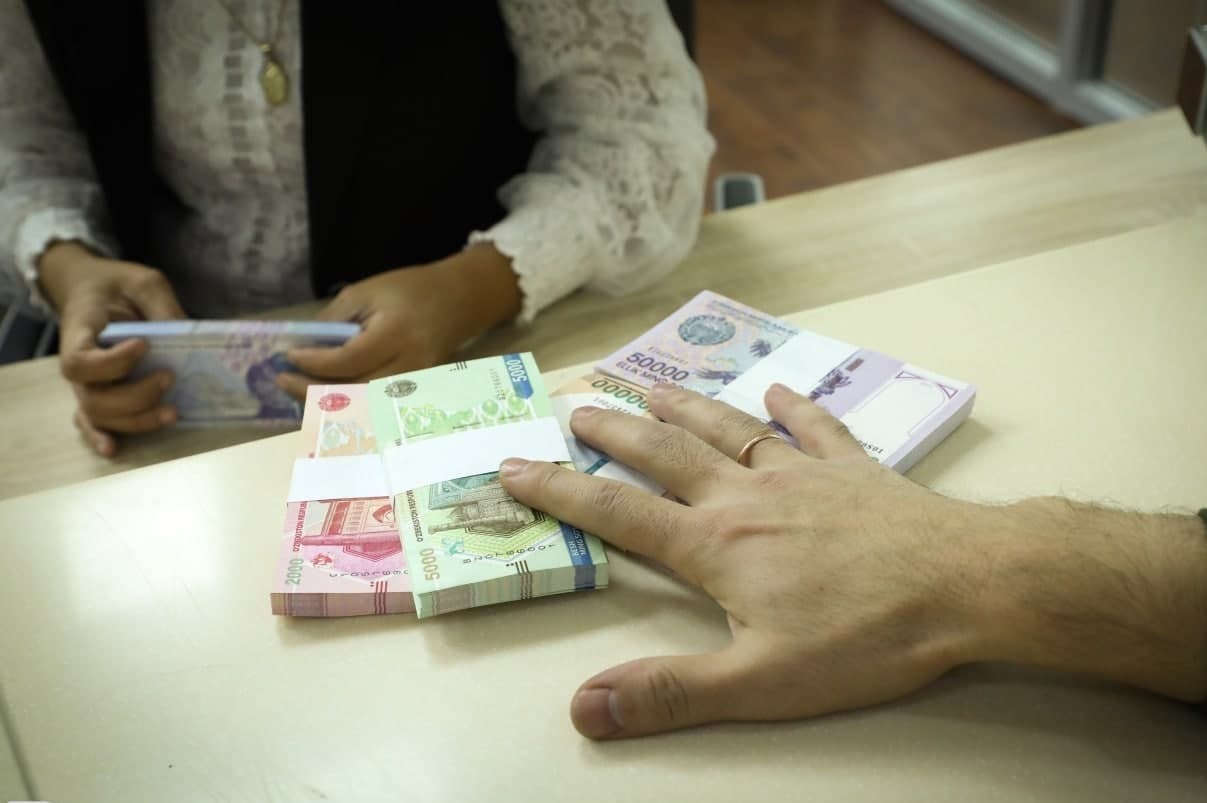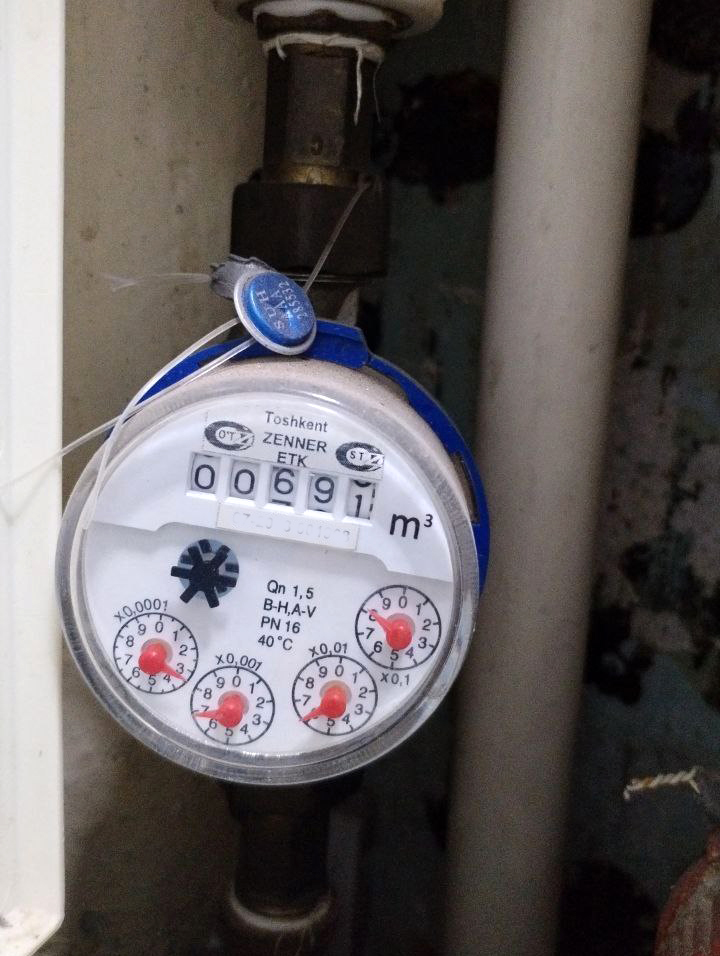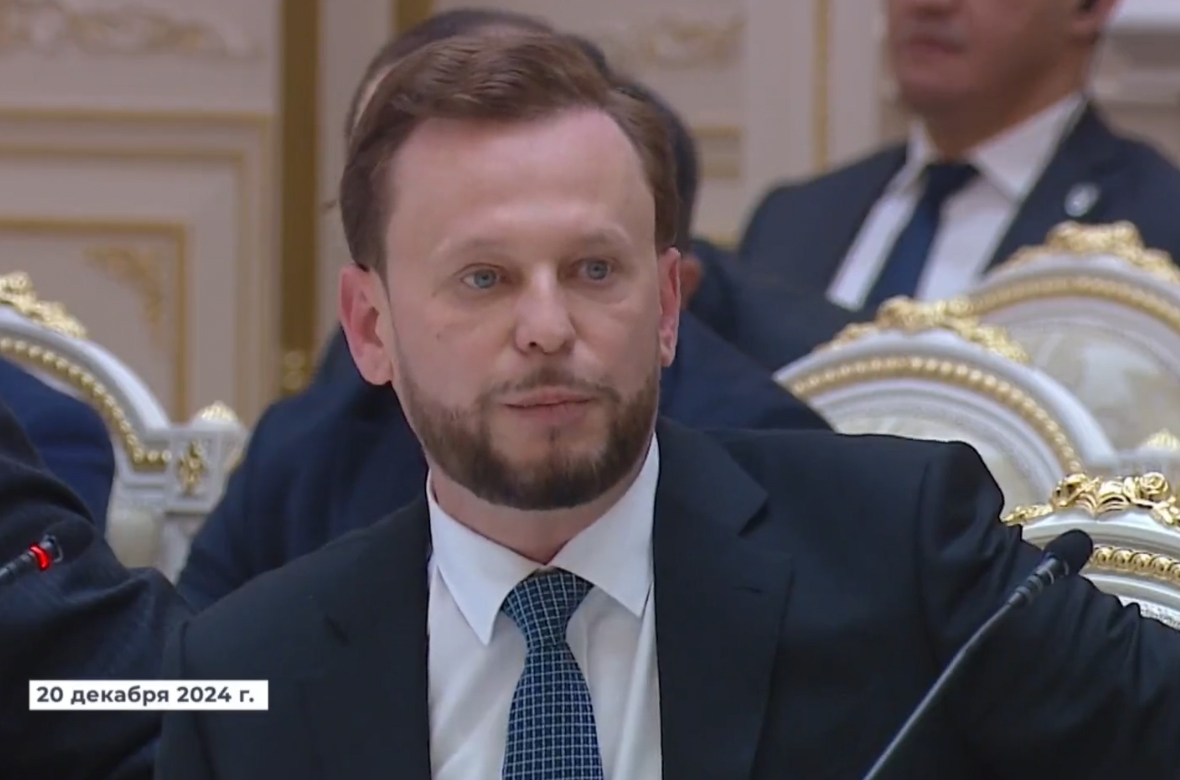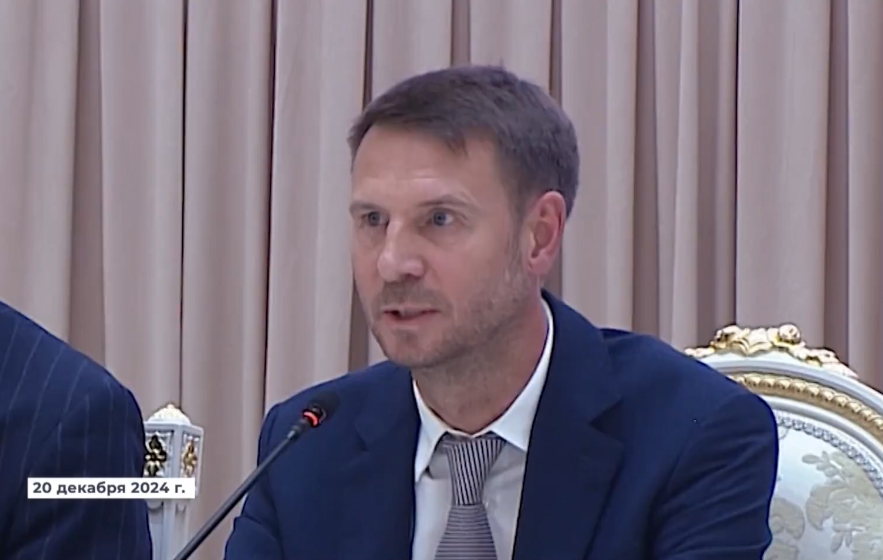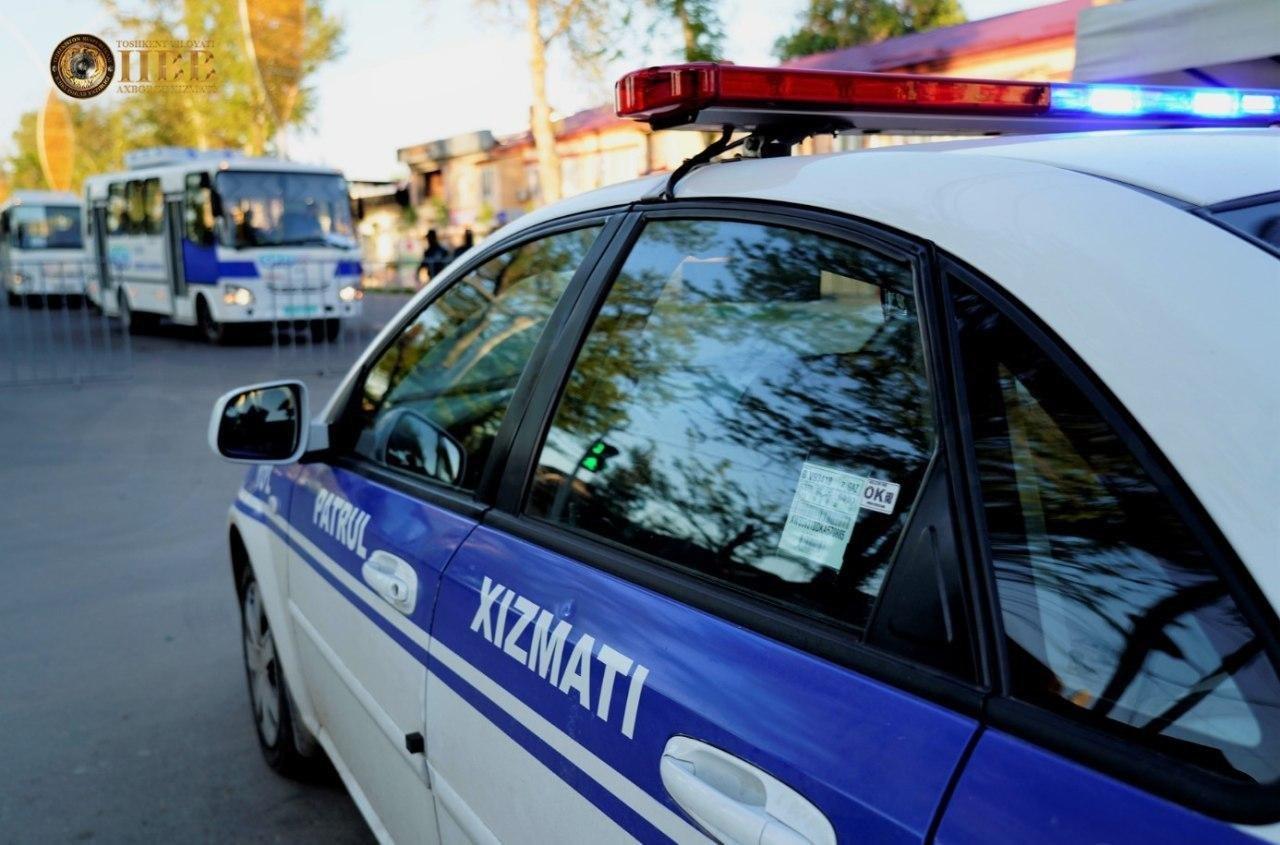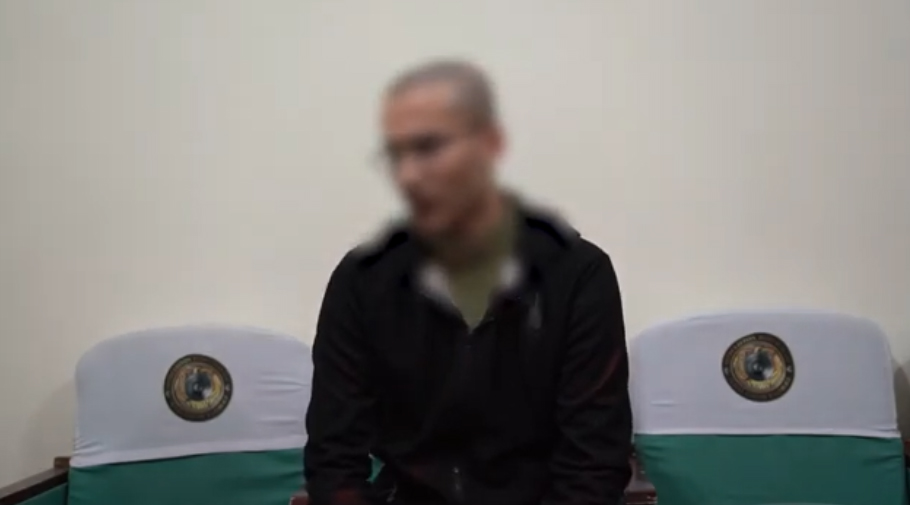This article is also available in:
Русский (Russian)
Uzbek
The authorities have announced the cost of so-called “super contracts”—paid spots in universities for applicants who did not score enough points to be admitted under the regular quota. At first glance, what’s wrong with that? But if you think about it, the situation looks quite alarming. Such a decision exacerbates social inequality. For many talented students who, due to financial constraints, cannot even afford a basic contract, higher education becomes an unattainable dream. While wealthy families can “buy” a diploma, others will have to settle for less or give up on education altogether.
This decision turns education into a privilege for those with money, not knowledge. Super contracts, in essence, legalize access to higher education for money, regardless of the level of preparation. It’s an open door for those who failed the exams but can afford to buy a place at the university.
And finally, super contracts undermine the very idea of fair and competitive admission to universities. If knowledge and preparation are no longer the main criteria, what’s the point of even taking exams? Why strive for high scores when you can always just pay your way in?
As for this year’s parameters, the cost of the basic contract will be increased by 6-19 times, depending on the field of study. These are colossal sums, accessible only to a few.
Below, you can see a table with coefficients to accurately calculate the cost of the contract. To understand how much a super contract will cost, you need to take the cost of education without a scholarship (you can find it here) and multiply it by the coefficient for that field of study.
For example, the cost of education in the field of “Journalism” without a scholarship is 7.4 million soums. The coefficient for this field in the table is 8. This means you need to multiply 7.4 million soums by 8, resulting in a contract amount of 59.2 million soums.
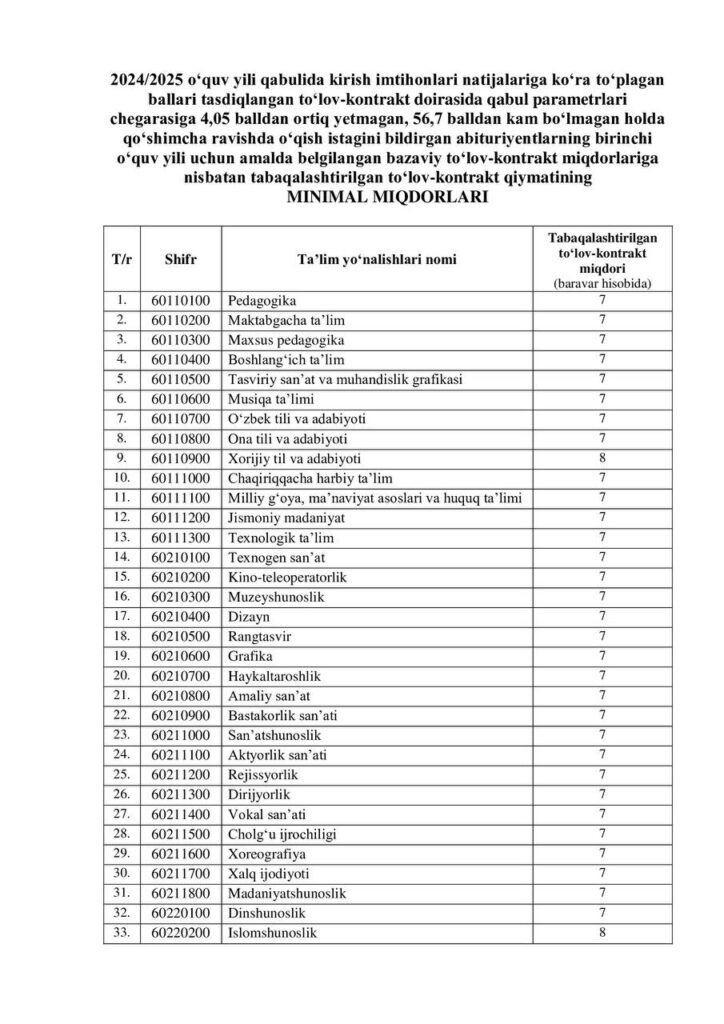
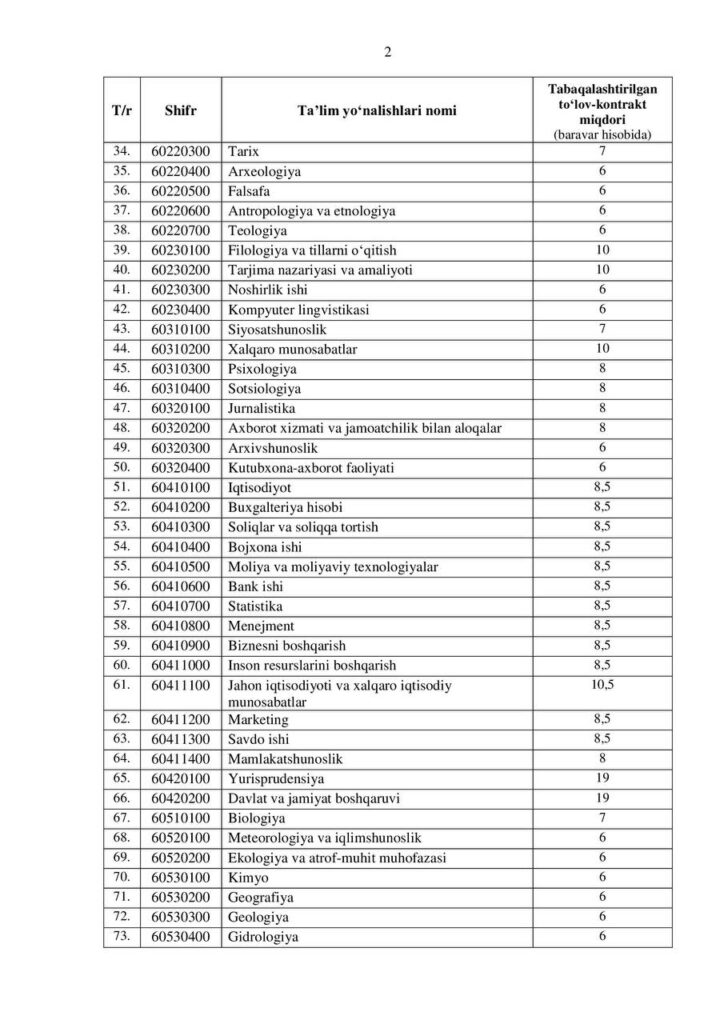
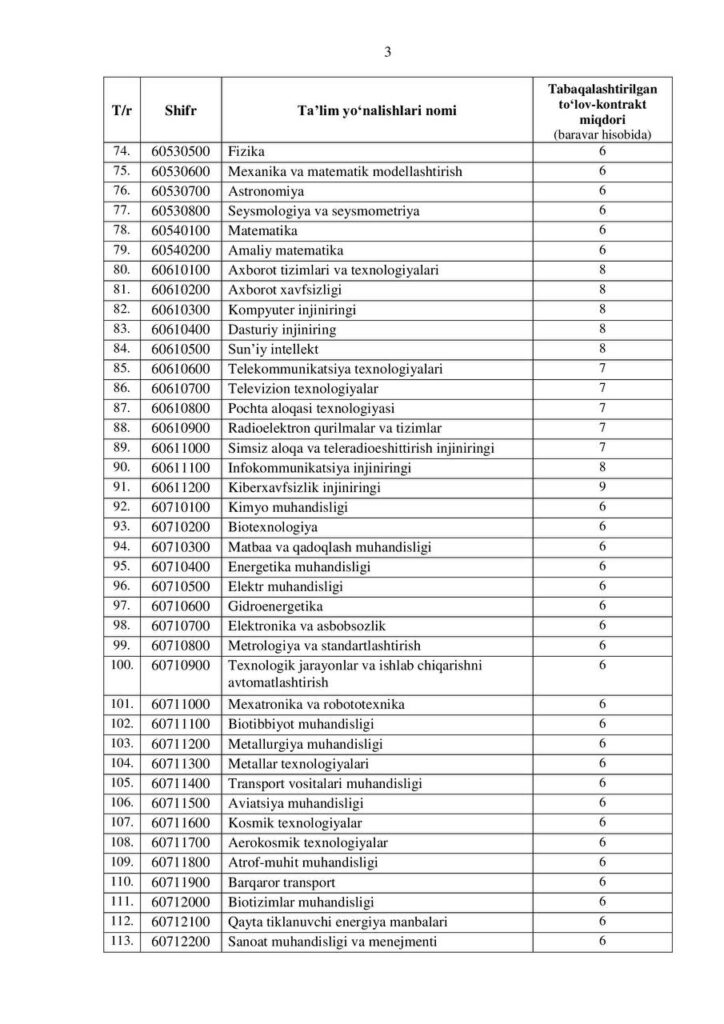
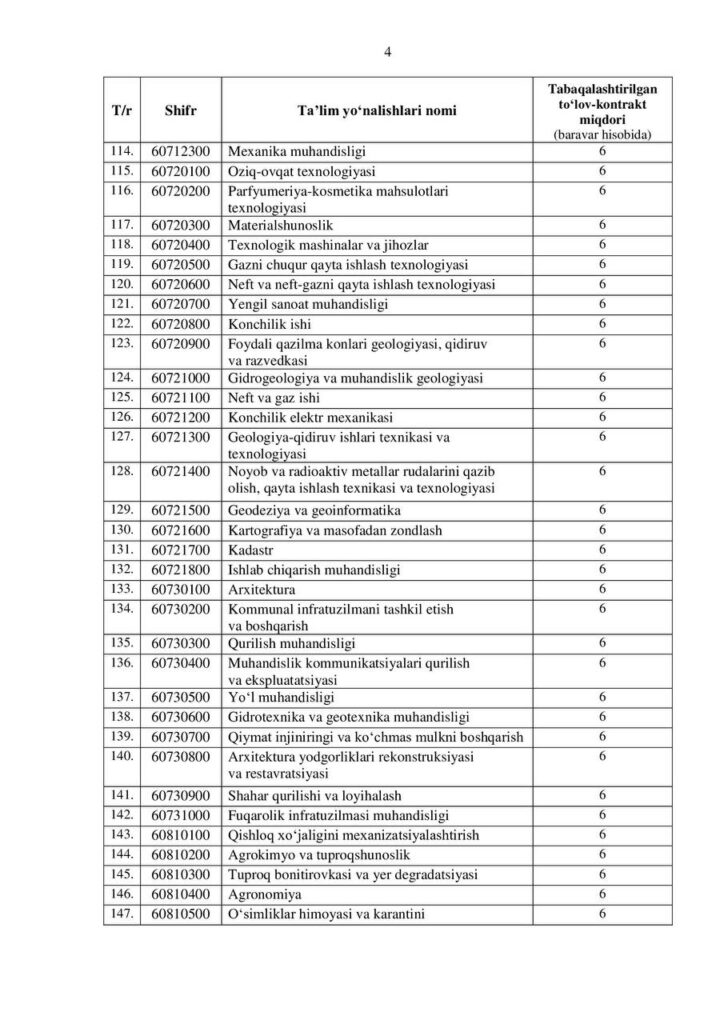
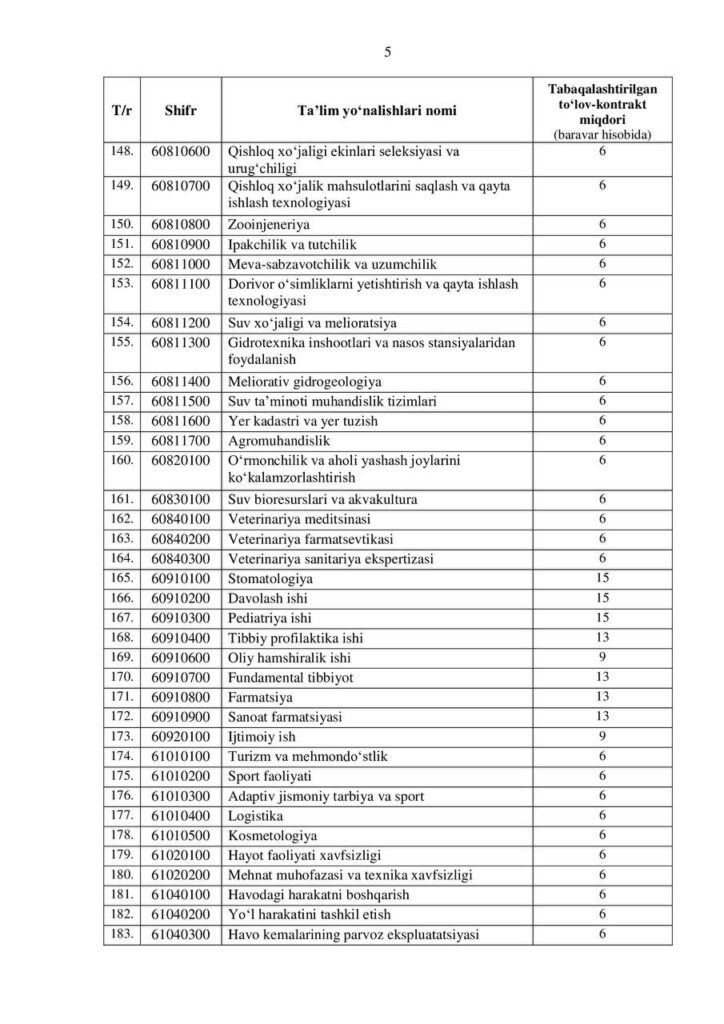
However, only those applicants whose score is 4.05 points below the established passing score under the paid education quota, but not less than 56.7 points, can become super contract students. Those who fully pay the super contract amount by October 15, 2024, will receive a 10% discount.
Education should be accessible to everyone, regardless of social status. It is not a privilege but a right that should be guaranteed to everyone. The introduction of super contracts violates this fundamental value and turns higher education into a commodity available only to the select few.
The ministry should consider the long-term consequences of such a decision. Education is an investment in the future of the country, not a source of immediate profit. If we start “selling” diplomas, what will happen to the quality of education, the future specialists, and the very idea of learning? The answers to these questions leave little room for optimism.
The text has been translated by AI. For more accurate information, please refer to the Russian version of the article.

